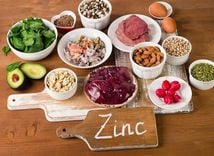The habit of not chewing food thoroughly can have negative consequences on overall health and diminish the enjoyment of eating. When people fail to chew their food properly, they are at a higher risk of developing digestive issues such as gastroesophageal reflux, gastritis, or food poisoning. Additionally, food that isn't chewed thoroughly does not deliver its full, inherent flavor.
1. Harmful effects of not chewing food thoroughly
It is essential to eliminate the habit of not chewing food thoroughly, as it can lead to several disadvantages:
1.1 Digestive Disorders
Food in general and high carb foods should be digested completely. Digestion begins in the mouth, where food is mixed with saliva and broken down into smaller pieces. When food is not chewed thoroughly, larger pieces reach the stomach and can hinder the digestive process. This increases the risk of conditions such as gastroesophageal reflux disease, constipation, and various bowel disorders.
1.2 Limited nutrient absorption
Food is a source of energy and the main nutrients for the body. Adequate and healthy nutrition will help form good health, ensuring the needs of daily study and work. As mentioned above, the act of chewing when putting food in the mouth is the beginning of the digestive process. Not chewing thoroughly affects the decomposition of food in the entire digestive process that follows. Nutritional components that are not completely metabolized will only be partially absorbed. People who have the habit of not chewing food thoroughly will gradually face the risk of nutritional deficiencies.
1.3 Increased risk of food poisoning
Poorly digested food is more likely to cause food poisoning. Saliva contains enzymes that help neutralize harmful agents in food. Insufficient chewing reduces enzyme secretion, limiting the body's ability to eliminate pathogens. Furthermore, this can lead to other health issues like stomachaches and enteritis.
1.4 Easy weight gain
Most people chew their food very carelessly. Studies have confirmed that people who eat quickly tend to weigh more than those who eat slower. People who do not chew their food thoroughly often have the habit of eating quickly, leading to eating more than necessary. In addition, when eating too quickly, the hormones that create a feeling of fullness secreted in the intestines do not have time to transmit signals to the brain. Therefore, the brain does not command to stop eating in time, and excess calories continue to be added. This causes weight gain, even at a difficult-to-control level.

1.5 Increased stress
An unhealthy eating habit like not chewing food thoroughly can adversely affect mental health as well as physical health. The digestive process does not take place smoothly in people who do not chew food thoroughly, causing them to always be bloated and have indigestion. At that time, the body is very susceptible to stress and discomfort.
2. Benefits of chewing food thoroughly
Chewing food properly offers numerous benefits that may be overlooked, including:
- Weight loss: Mahatma Gandhi once said, "Chew your drink and drink your food." He said so because it has been scientifically proven that there are benefits to chewing food properly. Studies show that chewing food thoroughly can aid in weight loss by allowing the brain more time to receive fullness signals; it typically takes about 20 minutes for the brain to recognize that the stomach is full. The slower you chew, the less you eat.
- Enhanced nutrient absorption from foods: Chewing breaks down large food particles into smaller pieces, making nutrient absorption easier for the intestines. Chewing your food properly also releases digestive enzymes in the stomach which help break down food so that the body can convert it into energy. Unless you chew your food thoroughly, these enzymes cannot break down food properly, leading to sluggishness and loss of energy. Research from the Institute of Food Technology has shown that when participants chewed almonds for longer, the small particles were better and faster absorbed by the body.
- Reduces many health problems: Chewing food properly helps prevent improperly digested food from entering the bloodstream, causing many health problems. If food is not chewed properly, it may remain undigested as it passes through your stomach to your intestines, which can lead to an overgrowth of bacteria in the intestines, which in turn leads to bloating, constipation, stomach pain, cramps, and other digestive problems.
- Chewing thoroughly is a good exercise for your teeth: Chewing is a great exercise for your teeth, helping to strengthen them. Saliva is produced while chewing, which helps to clean food particles from your mouth and wash away bacteria, thus reducing the chance of tooth decay.

- Mindful eating helps you enjoy your food more: Eating quickly does not allow you to fully enjoy your food, which leads to a feeling of unappetizing. Mindful eating is about experiencing your food more consciously, and chewing plays an important role in doing that. Along with the feeling of satisfaction, you get all the nutrients from your food when you chew it properly.
In conclusion, not chewing food thoroughly is an unhealthy habit, so you should change and learn to eat slowly and chew thoroughly to get the most benefits.
In case you have maintained the habit of not chewing food thoroughly for a while, there is a high possibility that your digestive system will be affected to some extent. In this case, you should go to the hospital for a general health check-up to get specific advice from a specialist.
To arrange an appointment, please call HOTLINE or make your reservation directly HERE. You may also download the MyVinmec app to schedule appointments faster and manage your reservations more conveniently.













